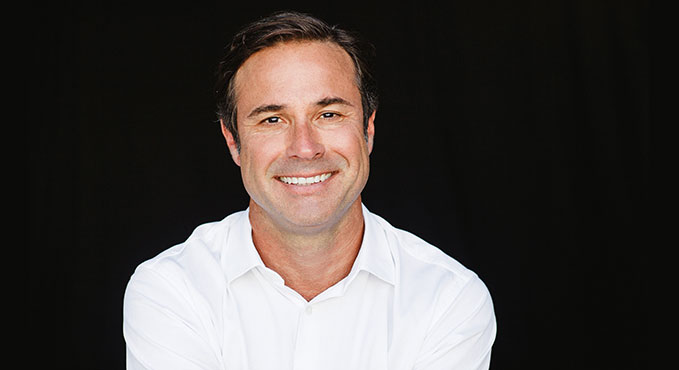Frequently Asked Questions
Where is your office Miami Beach located?
My office is located in Sunset Harbor between Purdy Avenue and Bay Road at 1410 20th Street, Miami Beach, FL 33139
When you arrive at the entrance, I’ll have provided you with the building code. Walk in and up the stairs and then walk west to 209. I’ll meet you outside my door.
What is in Sunset Harbor?
Sunset Harbor is a vibrant neighborhood in Miami Beach. Within two blocks, there is a Fresh Market, a Publix, restaurants such as Pub Belly Sushi, Pura Vida, and a Panther Coffee. There is an array of exercise facilities such as Barry’s Bootcamp, Sweat 440, Modo Yoga, and Anatomy Gym.
Is there parking in Sunset Harbour?
Yes, there are six floors of public parking in the Sunset Harbor Garage. The entrance is near the northeast corner of Bay Road and 20th Street. Hourly parking is $2.00/hour. There is also limited street parking but please read the signs because the tow trucks will tow you if you’re parked in a no parking zone.
Where is your office in Coconut Grove?
My Coconut Grove office is located at 2000 South Dixie Highway, Suite 104, Coconut Grove, Florida 33133
When you arrive, you’ll find a peaceful waiting room and a comfortable seating area. Make yourself at home. There is a buzzer which will alert me to your arrival. Also, feel free to send me a text message.
Is there parking in Coconut Grove?
Yes, the parking is plentiful, free and easy. Park wherever there is an open spot.
Who do you work with?
I work with men, women, young adults and adults. I am LGBTQi friendly and welcome all sexual and gender orientations. I encourage everyone to develop a spiritual life of their own making and understanding.
Do you just work with addicts?
I work with lots of different people with a wide range of conditions and opportunities to grow. I am skilled at helping people see their strengths and what may be limiting their potential(s) in life. I’m comfortable working with all mood disorders such as depression, anxiety, bi-polar, and situational issues such as grief and mourning.
How long is each appointment?
Appointments are 45 minutes for individuals and 60 minutes for couples. From time to time, appointments may run a bit longer but this is at my sole discretion.
Do you accept insurance?
I do not accept insurance at this time. If requested, I’ll happily provide a super-bill with all the required information for an out of network reimbursement.
What are your rates?
Individual therapy is $300 per 45 minute session and couples counseling is $350 for couples per 60 minute session and EMDR Processing is $350 for 75 minutes.
I test and evaluate for sex addiction, trauma, partners affected by sex addiction and money/work disorders. These are $35 – $135.
What forms of payment do you accept? Do you slide your scale?
I accept Cash, Venmo, Zelle, and checks. In some instances, I can process debit and credit cards.
I have a limited number of sliding scale slots each week for those people experiencing a difficult time financially. The available slots are determined
When do you see clients?
Monday – Thursday from 11:00am – 7:00pm.
On Monday’s, I am in Coconut Grove and Tuesday – Thursday, I am on Miami Beach.
What happens in the first session?
We review the rules of engagement; we get to know each other, discuss what may have brought you to therapy and why you’ve made the initial step. We begin to talk about expectations and goals. Prior to leaving, I may provide you with a patient history packet for you to complete.
What is psychotherapy?
Psychotherapy, or “talk therapy,” is a way to treat people with a mental disorder by helping them understand their illness. It teaches people strategies and gives them tools to deal with stress and unhealthy thoughts and behaviors.
Do you work with couples?
I do work with couples when one of the parties presents with some form of addiction, mental illness or trauma. I will in certain circumstances work with an individual and the couple concurrently.
What if my partner wants to come to therapy with me?
I encourage partners whether they’re the addict or the partner of an addict to come to every 4th or 5th session. This provides a safe, secure and confidential forum for them to discuss what is coming up for them in the process of recovery.
What are the benefits of therapy?
- New found happiness
- Freedom from self limiting behaviors and thoughts
- Enhanced relationships with your partner, family & friends
- Awareness of what is hampering your growth
- Development of insight into your strengths
- Setting of reasonable & accomplishable goals
- Reduced need to self-medicate
- Your perspective on people will change
- Your perspective on life will change
- Long-held secrets can be released once and for all (I’ve heard lots of them)
- You’ll know that you are not Alone
- It will prepare you for future challenges in life.
- Passive aggressive behaviors will stop resurfacing because the underlying anger will be processed
Most importantly, the process of psychotherapy (AKA talk therapy) holds and lasts. It puts you in charge and puts to rest old ideas, feelings, and emotions. They are discussed, challenged and processed once and for all.
The “feeling” part is what we as humans avoid doing – often at a very high cost. In therapy, you become a better feeler of feelings. Humans don’t like experiencing pain, so you self medicate via drugs, alcohol, sex, food, spending money etc. and in the process hurt yourself.
In a safe, confidential setting, talk therapy allows you to examine the resistance as it relates to your happiness and ability to transform yourself. If any of these benefits resonate with you, call 305-390-2670 to schedule a free 30-minute consultation.
What are the all those letters after your name?
The MSSW is the Master’s of Clinical Social Work. It’s the master’s degree which prepares a person to become a psychotherapist. I received my master’s degree from Columbia University in NYC.
The QS-CSW is a Qualified Supervisor – Licensed Clinical Social Worker; I’m licensed in the state of Florida (#11981), and my license is in good standing.
The CSAT is the certification of sexual addiction therapy and provides the theory and training to work with sexual addiction. More on this below.
The EMDR is Eye Movement Desentization Reprocessing and is a tool used to work with trauma. More on this below.
What about your style and approach?
My style is psychodynamic, positivist, collaborative and client centered. You set the agenda; I help you develop the necessary resources and tools so that you surpass your goals and objectives.
As a social worker, I’m trained in Attachment Theory, Life Course Theory, Internal Family Systems and applied through a collaborative Psychodynamic modality. I also employ Mindfulness Based Cognitive Therapy (MBCT), when appropriate some form of spirituality. I’ll always encourage you to exercise, meditate, breathe.
What is addiction?
Addiction is simply defined as repeated unsuccessful efforts to stop a certain behavior. These behaviors can involve alcohol, drugs, sex, shopping or gambling. Addiction is present when an individual fails to stop acting on the impulse to engage in one of these behaviors regardless of the consequences.
A key word in identifying addiction is “impairment.”
What’s impairment?
Webster’s defines impairment as,
- “to make or cause to become worse; diminish in ability, value, excellence, etc.; weaken or damage”.
- “to grow or become worse; lessen”.
I like to think of impairment as the opposite of growth. Impairment is also akin to disease. Both stop a person from growing and go further and stop the genesis of new growth. Atrophy then sets in and reverses growth or the presence of addiction the degeneration and deterioration of a person’s physical and emotional well being.
The presence of addiction is observed when an individual’s emotional, physical, social, professional and financial well-being are impaired by a certain repetitive behavior with unsuccessful attempts to stop.
Is addiction curable?
There is plenty of debate around this question. Some people believe that alcoholism is treatable and at some point an alcoholic can drink again. And there are those who feel that alcoholism is a chronic lifelong disease that requires continued care and regular attendance at AA meetings.
What is certain is that addiction wreaks havoc on a person’s life and impairs a person’s ability to foresee the consequences of their behavior.
When asked, I suggest a person look back in time and document and detail the number of times they have stopped and subsequently restarted any behavior that has negatively impacted their life. The evidence is often hard to refute and with this in mind they are welcome (or not) to test and retest their ability to engage and disengage in the behavior in question.
How is addiction treated?
Addiction is best treated with a combination of individual therapy, attendance at 12 step fellowships, group therapy, the support of one’s family and friends and a daily commitment to recovery.
How is sex addiction different from other addictions?
Sex and food addictions are known as a process addictions. Process addictions are different in that human beings need food and sex for survival and well- being. Treating process addictions can be challenging because a healthy, sustainable balance must be attained. For example, food addicts may limit their intake of sugar because once they begin to consume sweets, they cannot stop. Similarly, sex addicts must come to understand which behaviors control them so as to exclude them from their lives.
Is sex addiction difficult to treat?
Yep, it’s a challenge, but can definitely be treated by a therapist who has been trained to work with sex addiction. When a person is ready for change and open to a new course of action, their life can move towards serenity, productivity and reconnecting with people lost to addiction.
Sex addiction is tricky because it can be acted upon in secrecy and often there are few short-term apparent consequences. Alcohol and drugs create immediate signs of use and abuse and leave a person impaired. We all recognize and physical evidence such as a hangover or an overdose.
But sex addiction does not leave a person overtly impaired. The addiction surfaces when it affects a person’s emotional, professional, social, physical and financial well-being.
What is a CSAT?
A CSAT is a Certified Sexual Addiction Therapist. CSAT’s are trained and certified by the International Institute for Trauma and Addiction Professionals. The organization was started by Dr. Patrick Carnes, the author and pioneer of sexual addiction recovery. Dr. Carnes wrote Out of the Shadows, Understanding Sexual Addiction. CSAT’s use a task based methodology to help sex addicts regain their lives and learn to live with healthy sexuality.
What is EMDR?
EMDR (Eye Movement Desensitization and Reprocessing) is a psychotherapy that enables people to heal from the symptoms and emotional distress that are the result of disturbing life experiences. Repeated studies show that by using EMDR therapy people can experience the benefits of psychotherapy that once took years to make a difference. It is widely assumed that severe emotional pain requires a long time to heal. EMDR therapy shows that the mind can in fact heal from psychological trauma much as the body recovers from physical trauma.
How does EMDR work?
The brain’s information processing system naturally moves toward mental health. If the system is blocked or imbalanced by the impact of a disturbing event, the emotional wound festers and can cause intense suffering. Once the block is removed, healing resumes. Using the detailed protocols and procedures learned in EMDR therapy training sessions, clinicians help clients activate their natural healing processes.
What behaviors are associated with sexual addiction?
- Excessive use of online pornography
- Compulsive masturbation
- Unexplainable sexting
- Infidelity
- Commercial and transactional sex (prostitution & massage parlors)
- Voyeurism
- Lost blocks of time
What symptoms are associated with sexual addiction?
- An increase in drug and alcohol abuse
- Depression
- Isolation
- Shame
- Loss of energy
What symptoms are associated with depression?
- Feelings of helplessness and hopelessness
- Loss of interest in daily activities
- Appetite or weight changes
- Sleep changes
- Anger or irritability
- Loss of energy
- Self-loathing
- Reckless behavior
What symptoms are associated with anxiety?
- Feeling nervous, restless or tense
- Having a sense of impending danger, panic or doom
- Having an increased heart rate
- Feeling weak or tired
- Trouble concentrating or thinking about anything other than the present worry
- Having trouble sleeping
- Experiencing gastrointestinal (GI) problems
- Having difficulty controlling worry
- Having the urge to avoid things that trigger anxiety





